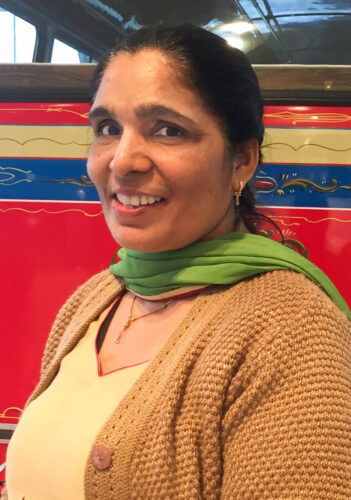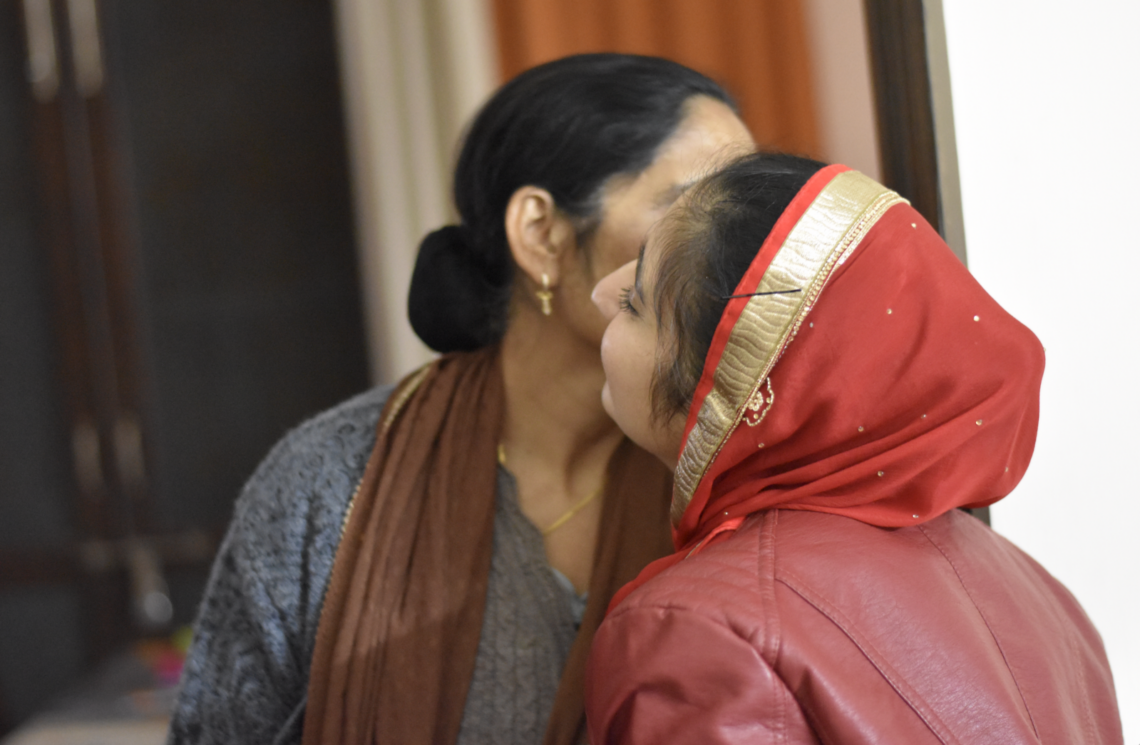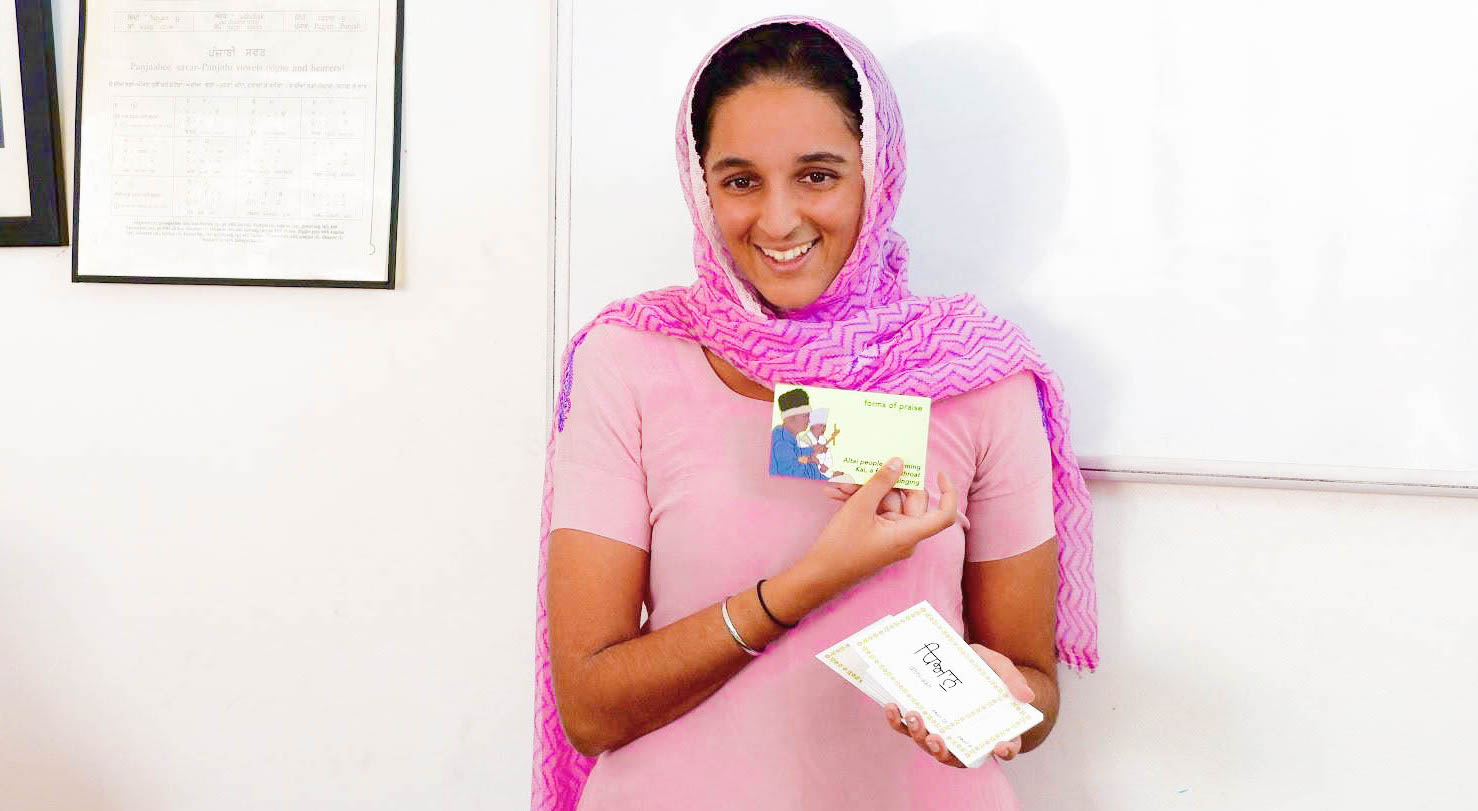By Amritpal Kaur
Growing up, I heard from many people that mothers-in-law are “bad” and they only love their own daughters, not their daughters-in-law. Most of our Indian TV serials revolve around the “saas” (mother-in-law) and “bahu” (daughter-in-law) relationship showing how badly they get along with each other. I grew up watching these serials and developed a “typical” picture in my mind that a daughter-in-law is hardly accepted by her new family.
Bombarded by such narratives, it can be hard to believe otherwise. I grew up in a joint family of around 10 people living in the same house. I saw my dadi (paternal grandmother) favor her own daughters over my mother and aunt. While I wouldn’t call her “bad”, I feel that she hasn’t yet accepted my mother or aunt as her own daughters.
What these stories are missing are the “good” mothers-in-law. We don’t often hear about the good relationships between a mother-in-law and her daughter-in-law. They do exist! Sometimes, I think about Mata Khivi. In Guru Granth Sahib, she is described as, “a noble woman, who gives soothing, leafy shade to all” (Ang 967). “To all” makes me think she was a kind mother-in-law to her children’s spouses. I’m sure there are many other positive examples in Sikh history, lost to time.
Luckily, my own mother-in-law, Jaswinder Kaur (whom I call Mom) is different than what I had grown up to expect. From day one, she has been loving and accepting of me. In this light, I think it is important to show the world the face of women who are different from the stereotypical picture of a mother-in-law we are all exposed to. Perhaps my story might help others feel more comfortable and be open minded while stepping into a new family when they get married.
My First Glimpse of My Mother-in-Law

The first picture that I painted in my mind about my mother-in-law was through my husband. When I heard his voice for the first time, I was so astonished; I could feel calmness and happiness in his voice. Over time, I learned about his personality – I lack words to describe him. He is more than humble, understanding, and accepting. He thinks first about the good of others. While getting to know him, I started wondering about the woman who raised such a man.
I learned that she too is an Amritdhari Sikh who tries to follow Rehat and walk on Guru Ji’s path. For instance, I see her practice naam japo (meditate on the Divine), kirat karo ( earn an honest living), and vand shako (sharing with others) in her daily life. After waking up early in the morning, she bathes and recites 5 baaniya. Her routine includes doing Sukhmani Sahib paath during the day or if she has an ongoing Sehaj paath, she would spend an hour doing that.
I also found out that she is a retired physician and many people endearingly call her “Doctorni”. People still ask her for her help and regardless of the time, day or night, she always gives out advice and medical care, freely. When she was serving people, she never cared about time. Her empathy and emotional connection with others drives her to help those who are suffering.
Feeling Accepted
Thanks to the tone set by my mother-in-law, from the day I got married, there was no such moment where I felt like an outsider in my husband’s family. Mom never made me feel like a daughter-in-law but rather treated me as her own daughter. She always says that I am her third child. During our wedding, Mom bought me nice jewelry and expensive dresses, just like a mother would do for her own daughter. And this love continued after the wedding, as I was accepted by the family with open arms.
One way this feeling of belonging was achieved was through sharing and considering others. The concept of sharing with others, be it wealth or food, plays a vital role in our lives. If not practiced, we suffer from various problems like fights within the family. But, if we learn to share, it brings happiness and love to us. This idea of sharing is well integrated into our family by my mother-in-law. For example, we always eat our meals together and drink our morning and evening tea together. And if anything special is cooked or gifted to us, we all make sure to save enough for everyone in the family – a trait I had not seen in other Punjabi families. I never really paid attention to these little signs of care before my marriage. It’s wonderful that my mother-in-law has illustrated that we can show care for others by sharing and thinking of each other.
Not Worked to Death
Many women fear that upon marriage they will be forced to cook and clean, tend to the family, become exhausted, and have to abandon their old lives. Luckily, Mom has never forced me to do anything. Instead, she would try to do things by herself to let me enjoy life. For instance, she would get up early, cook the vegetables for the day and prepare morning tea, and we would all drink the morning tea together in bed. Thoughtfully, she even hired a housekeeper so the burden of dishes and cleaning the house wasn’t on me.
Free of judgement, she gave me freedom to live in my own way – even if it was sleeping-in or trying to cook food. She never berates me or shames me for my shortcomings. Instead, she praises me every time she gets a chance. If she hadn’t supported me in this way, I don’t know if I would have been so easy for me to integrate into the family.
Support & Respect
Apart from all these things, Mom is my support system. From my personal to my professional life, she is confident that I can achieve anything in my life if I make the effort. She is happy when something good happens in my work life and sad when I am facing a problem. Mom is always standing by my side in my times of need. She tries to understand what I am going through even when it is about a fight between me and her son. For me, Mom has become an idol, a woman who is a loving, respectful, caring, brave, bold, and moral leader, friend, and learner. I feel there is so much more good in her hear than I will ever know.
Conclusion
Through this article, I wanted to provide an alternative perspective to the default picture of a “bad” mother-in-law that some young women might have in mind. I hope it will help people develop a different and positive image and relationship with their mothers-in-law. The very first step we as women can take towards building a good relationship with another woman is to hold on to a positive portrayal of mother-in-laws, and make respect and love as the foundation of your new relationship with her.
Here are a few ideas and questions to ponder when considering or starting a relationship:
- Try to enter a relationship with an optimism and an open mind.
- Clearly and respectfully communicate your needs and dreams.
- Think about what traits in a family are “must-haves” and things you are flexible about or are willing to compromise on.
- How does your partner speak to his mother and sisters?
- How does he speak about his mother and sisters?
- How are chores divided in his family?
- Are women in his family encouraged to pursue their own interests?
- What are the relationships like between each family member?
- What are family expectations of each other?
- Is open and honest communication encouraged? How is conflict dealt with?
- Do you have shared values and perspectives? Do you have shared goals around Sikhi? Family?
- Does your future mother-in-law:
- respect your opinions? The opinions of other daughters-in-law?
- want to get to know you?
- not make comparisons?
- respects you or her other daughters-in-law when you/they are not around?
- understand personal boundaries?
- supportive of your future?





No Comments